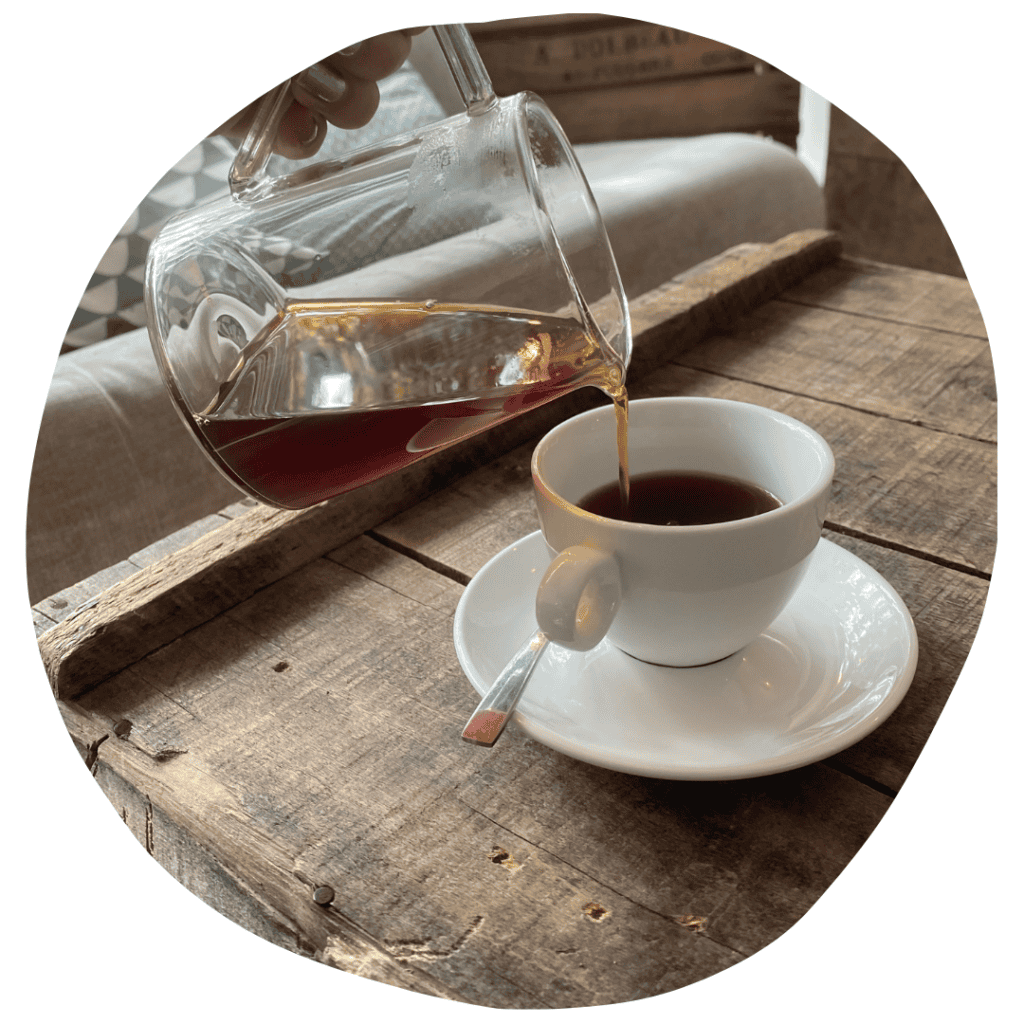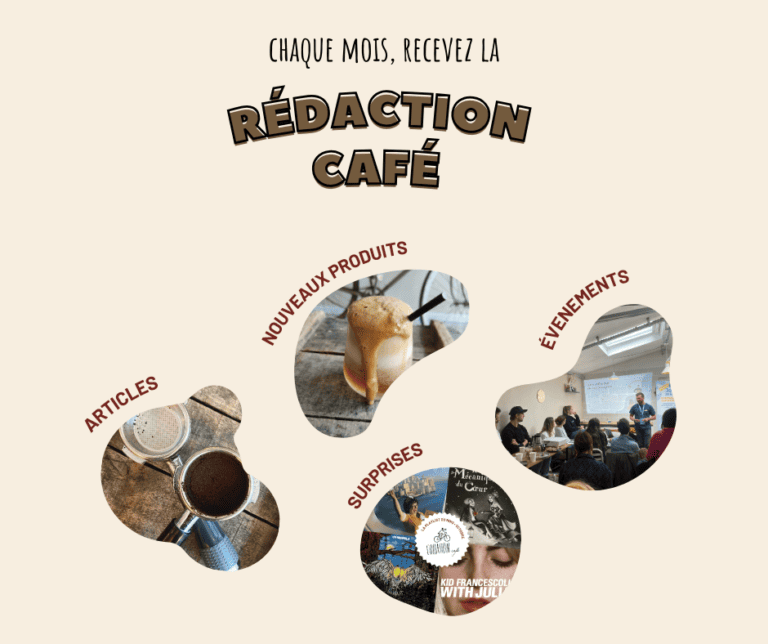What is coffee roasting ?
And how does it affect a cup of coffee?
Perhaps you’ve already heard of ‘coffee roasting‘? ☕️ If you don’t know exactly what it entails and the subject interests you, this article is for you. 😌
We’ll explain the basics: what it involves, what the different types of roasting are and how it all affects the result of a cup of coffee.
Cooking coffee, but not only...
So, yes, roasting your coffee means cooking your coffee beans so you can enjoy them. For those who don’t know, coffee comes from coffee cherries growing on bushes. Before being cooked, the coffee bean is green! For those who are interested, we take a closer look at the coffee harvest in an article on specialty coffee. ☕️ Feel free to take a look if you’d like to know more!
So, the coffee is cooked by the roaster using a machine called a… roaster. This profession is often practiced by coffee shop owners or coffee farm owners, as it requires a great deal of knowledge of the product and ways of working it. 👍
But let’s get back to roasting. To give you a quick rundown, the roaster receives between 7 and 11 kilos of (green) coffee which he feeds into his machine, which cooks the coffee at over 200 degrees, either by convection or condensation. The coffee is fed into a large drum, which rapidly cooks the coffee, before being transferred to a large vat, which quickly stops the cooking process. The roaster gives you 100% control over your coffee, especially at the cooling stage, when the beans are in motion and in contact with cold air, to homogenize the entire cooking process.
The roaster must therefore manage a number of parameters to guarantee a good result in the cup. Temperature, cooking time and the amount of gas entering and leaving the machine are all very important. The difference in cooking time, for example, will affect the color of the beans, which will be lighter or darker, as well as the aroma of the coffee (just as a steak will not have the same color or taste depending on whether it’s blue or well done).
Let’s come back to these differences in flavors that the same coffee can provide depending on the roast it has received. 😌
The different types of roasting
There’s a whole vocabulary in the world of roasting. To give you the basics, we’re going to talk about light, medium or dark coffee. If you understand the steak metaphor, the more a coffee is cooked, the darker it will be, and conversely, a light coffee is one that is stopped at the beginning of cooking. ☕️
In France, we’re used to drinking dark coffee. But it’s important to differentiate between common coffee (from major brands such as Café Richard or Nespresso) and the specialty coffee served in coffee shops. At L’Occasion Café, we serve light or even medium coffee, for a more complex and tasty result. In France, and more broadly in Northern Europe, we’ve noticed that a light (or even ultra-light) coffee will have a more complex aromatic palette, and it’s in this way that the coffee will bring out more flavor. 😋
To give you an idea, this is equivalent to a cooking time of around 11 to 12 minutes. So, a light coffee will have more fruity, floral and acidic aromas, while a more fully cooked coffee will be quite gourmand and bitter, with chocolate and nuts.
Bear in mind, too, that a light coffee will be tastier and more complex, but also much more complicated to extract. As it has been cooked rather quickly, the coffee bean will be less sensitive and more subtle, and you’ll need to work on the best extraction recipe to succeed in extracting all its flavors! 🌸🍓 Which makes our product even richer and more interesting!
It’s up to you to find out which roast will be your favorite 😉 Occasionally, we can introduce you to different coffees and different aromatic palettes. If you’re interested, don’t be afraid to ask your barista for advice 😊

Of course, there’s a lot more to roasting than this, and it’s a much more complex practice than we’ve just mentioned. We wanted to share with you the basics you need to know when you’re interested in coffee and how it’s produced. 😊☕️
We’ll see you soon for more coffee-related content (feel free to follow us on Instagram to learn all about it).
See you soon at Occasion Café! ✅
Our blog posts

Why work outside your office?
Here’s why it’s worth trading in your office (or living room) for a good cup of coffee and an inspiring

Ube latte: its origins, its benefits and why you love it
Ube latte: that famous purple powder that’s so fashionable at the moment. 💜 Let us tell you a little more

3 ways to give your coffee a twist
If you put a lump of sugar in your coffee, stop! There are other ways to sweeten and twist the

